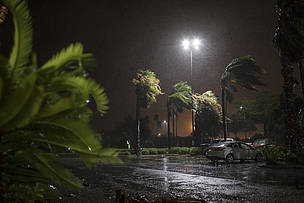EU must put climate centre-stage as global spotlight brightens
EU leaders must commit to a genuine emissions reduction target - not a ‘net’ target - of at least 65%
What’s happening?
EU leaders are coming together on 10 December to discuss the increase to the EU’s 2030 emissions reduction target, which is currently ‘at least 40%’. The science is clear; only a 65% emissions reduction is in line with a 1.5°C global temperature rise. However, the EU Commission proposed a 55% ‘net’ emissions reduction target. The addition of ‘net’ to the target means it would include natural carbon removals and make actual emissions reduction more like 51-53% only. In its recent vote on the EU climate law the European Parliament went further and supported 60% emissions reductions.
Why does it matter?
This is the EU’s last chance to finalise its new target before the deadline for submitting an updated climate plan (‘Nationally Determined Contribution’ or NDC) to the UN, as agreed in the 2015 Paris climate accord.
Globally, there is increasing momentum on climate action. In recent months and weeks countries like China, Japan and South Korea have committed to climate neutrality, and many, from Chile to Rwanda to New Zealand have already submitted their updated NDCs. Most recently, the UK committed to a 68% emissions reduction target for 2030. With climate impacts worsening rapidly around the world, the EU must not delay.
Ester Asin, WWF European Policy Office’s Director said:
“The EU Green Deal aims to rewire Europe’s economy for a sustainable, climate-neutral future. We need science-based, socially fair climate policy as the powering force to get us there. In practical terms, this means EU leaders this week must commit to a genuine emissions reduction target - not a ‘net’ target - of at least 65%, and close the door on EU funding for fossil fuels while providing support to regions for clean solutions.”
What is WWF calling for EU heads of state and government to do?
- Show climate leadership and to endorse an emissions cut of at least 65% compared to 1990 levels by 2030, the bare minimum consistent with keeping global temperature rise to 1.5°C;
- Reject the idea of changing the EU’s current nationally determined contribution (NDC) to a ‘net’ emissions reduction target. Based on its own impact assessment, the Commission’s proposal of a 55% net reduction would mean a cut in real emissions of only 50.5% to 52.8%, depending on the size of the EU’s carbon sink. It would also add considerable uncertainty, making the EU and Member States reliant on highly uncertain levels of removals that cannot be considered interchangeable with emissions reductions and must be addressed separately;
- Avoid giving any support, on grounds of ‘technology neutrality’, to fossil gas or nuclear, neither of which has anything to contribute to the urgent reduction in emissions that is needed over the next decade.
Read a short briefing on the key climate issues at the European Council (by WWF EU, Greenpeace EU and CAN Europe)
Contact:
Imke Lübbeke
Head of Climate and Energy
iluebbeke@wwf.eu
Sarah Azau
Media manager
sazau@wwf.eu
+32 473 573 137




